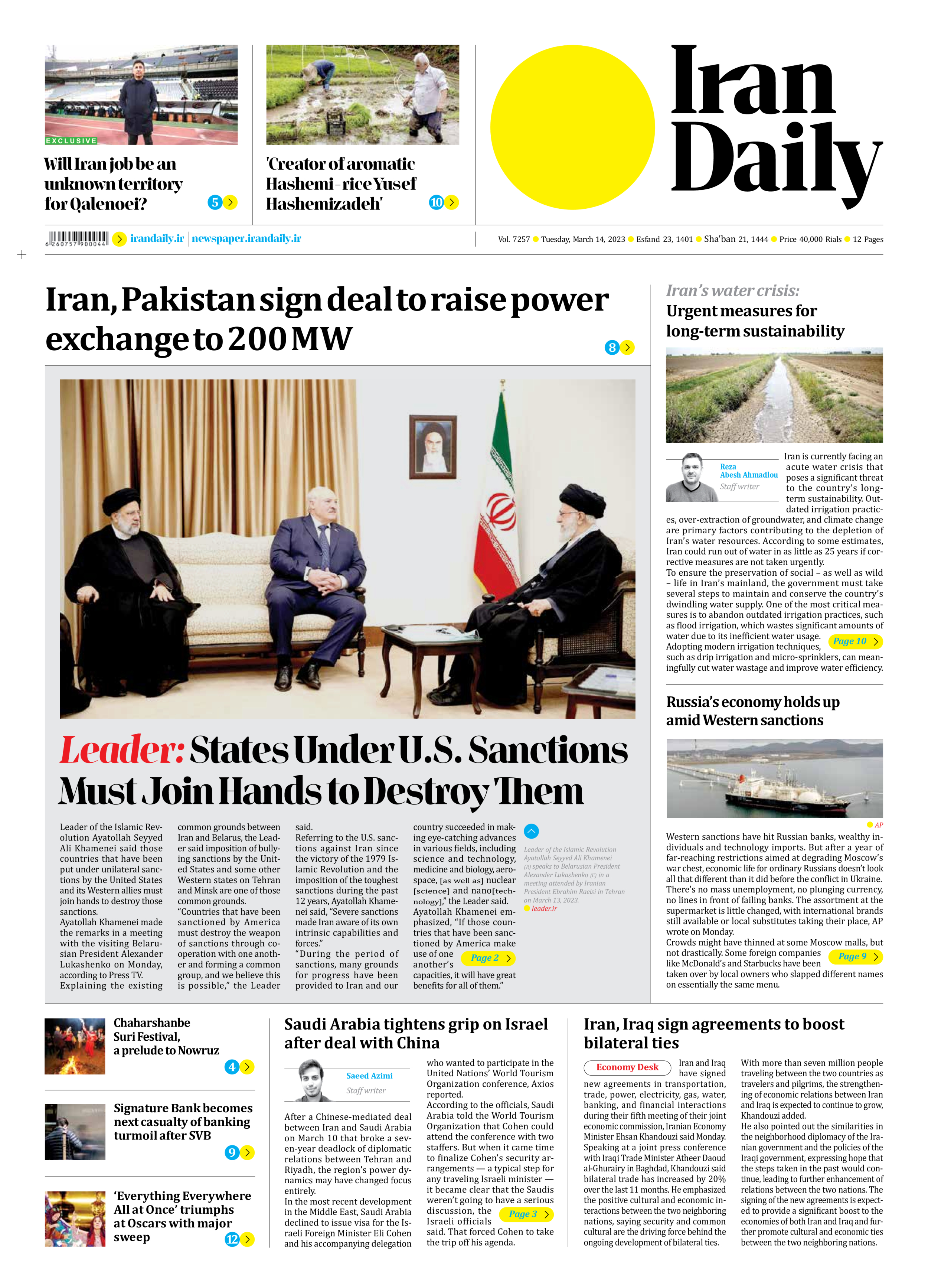
Saudi Arabia tightens grip on Israel after deal with China
After a Chinese-mediated deal between Iran and Saudi Arabia on March 10 that broke a seven-year deadlock of diplomatic relations between Tehran and Riyadh, the region’s power dynamics may have changed focus entirely.
In the most recent development in the Middle East, Saudi Arabia declined to issue visa for the Israeli Foreign Minister Eli Cohen and his accompanying delegation who wanted to participate in the United Nations’ World Tourism Organization conference, Axios reported.
According to the officials, Saudi Arabia told the World Tourism Organization that Cohen could attend the conference with two staffers. But when it came time to finalize Cohen’s security arrangements — a typical step for any traveling Israeli minister — it became clear that the Saudis weren’t going to have a serious discussion, the Israeli officials said. That forced Cohen to take the trip off his agenda.
The delegation initially invited also didn’t travel to the kingdom because they didn’t get a response from the Saudis in time on their visa requests, Israeli public broadcaster Kan reported.
Israeli officials did not push Riyadh to issue visa, noting that Saudi Arabia is hosting several UN conferences later this year.
This development comes while Riyadh openly stated that it is not seeking to normalize ties with Israel. Yet, Axios believes that the Israelis are still sending messages to Saudi Arabia, pushing for an agreement similar to the Abraham Accords.
Similarly, the UAE has reportedly said that it would not buy Israeli defense systems.
The decision seems to be a protest to the Israeli Prime Minister Benjamin Netanyahu’s most recent policies.
Netanyahu’s office, however, rejected the report, saying that the news is “without basis.”
Like it or not, Iran-Saudi Arabia rapprochement is a resounding failure to the Israeli government’s foreign policy.
Facing with various domestic crises, Netanyahu is dealing with a major blow to its foreign policy, as the Middle Eastern countries have welcomed Tehran and Riyadh resuming diplomatic ties, and with the reopening of the embassies in two months, Iran will seriously pursue to normalize its ties with Jordan and Egypt. Talks are currently ongoing between Tehran, Amman and Cairo through intermediaries, and the likelihood of reaching an agreement has increased, especially after what happened in Beijing on March 10.
Iran-Saudi Arabia deal may not directly relate to Riyadh’s decision to block visa issuance for Cohen and his delegation, but it will be considered an important step in the process of building the lost trust of Tehran.







